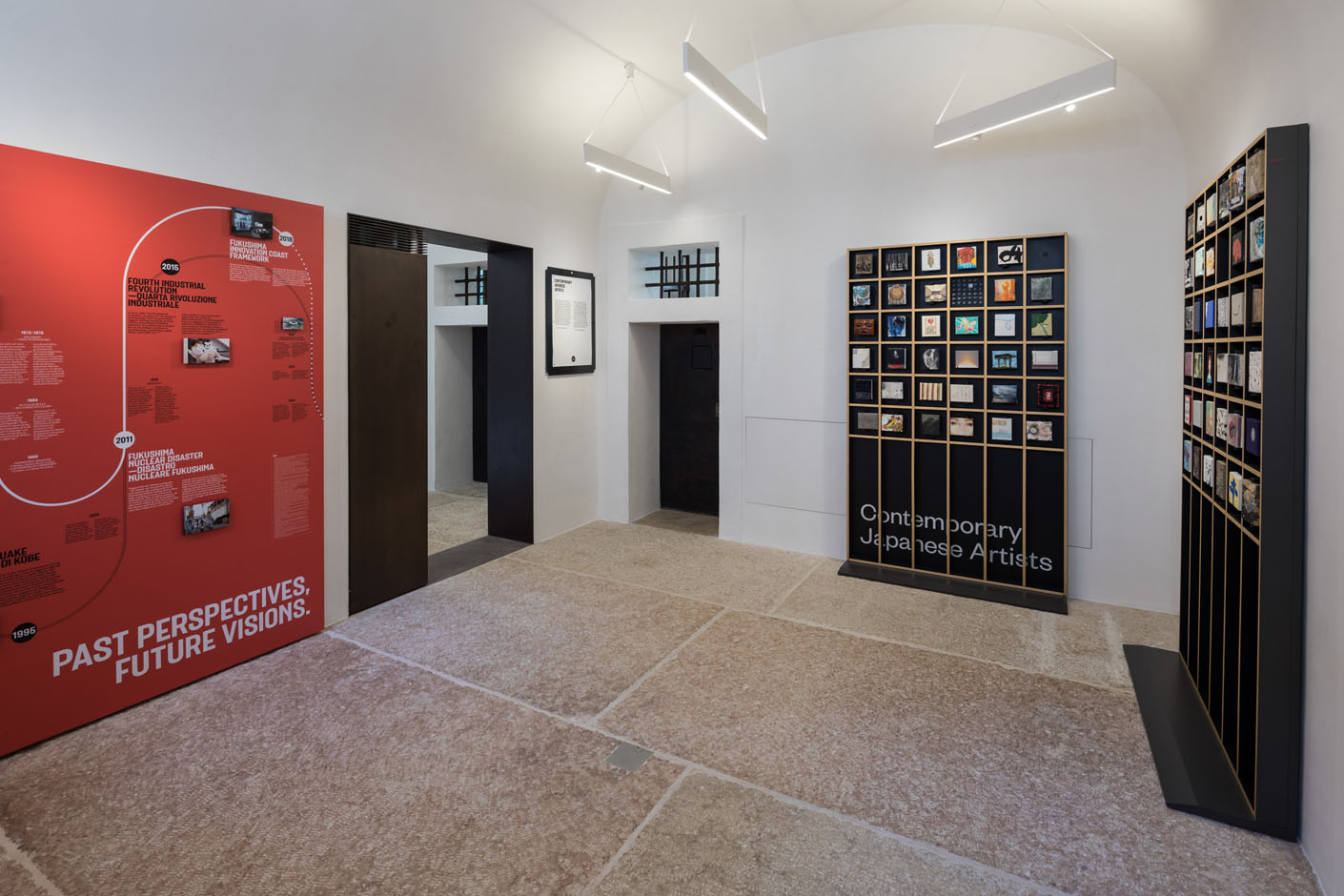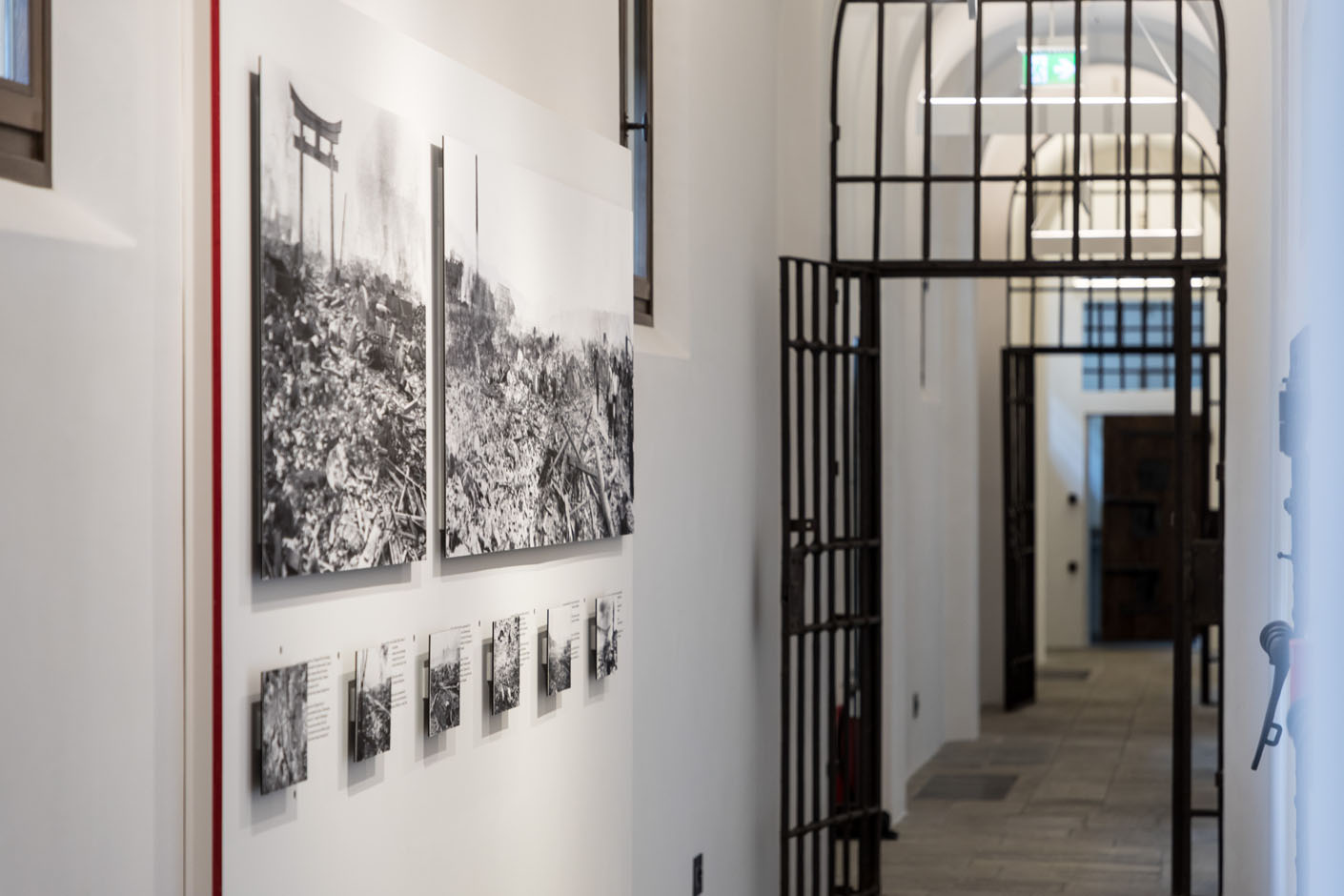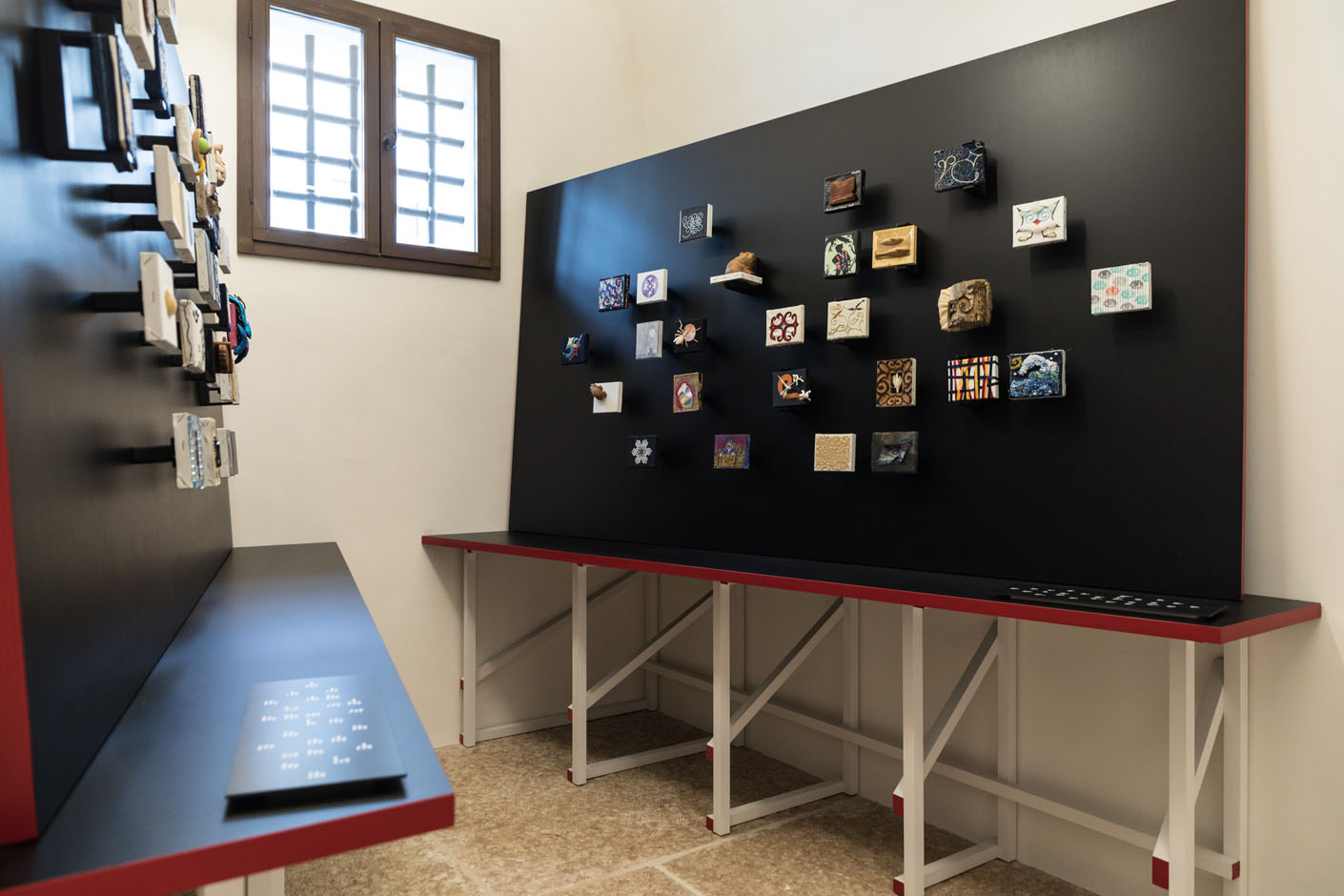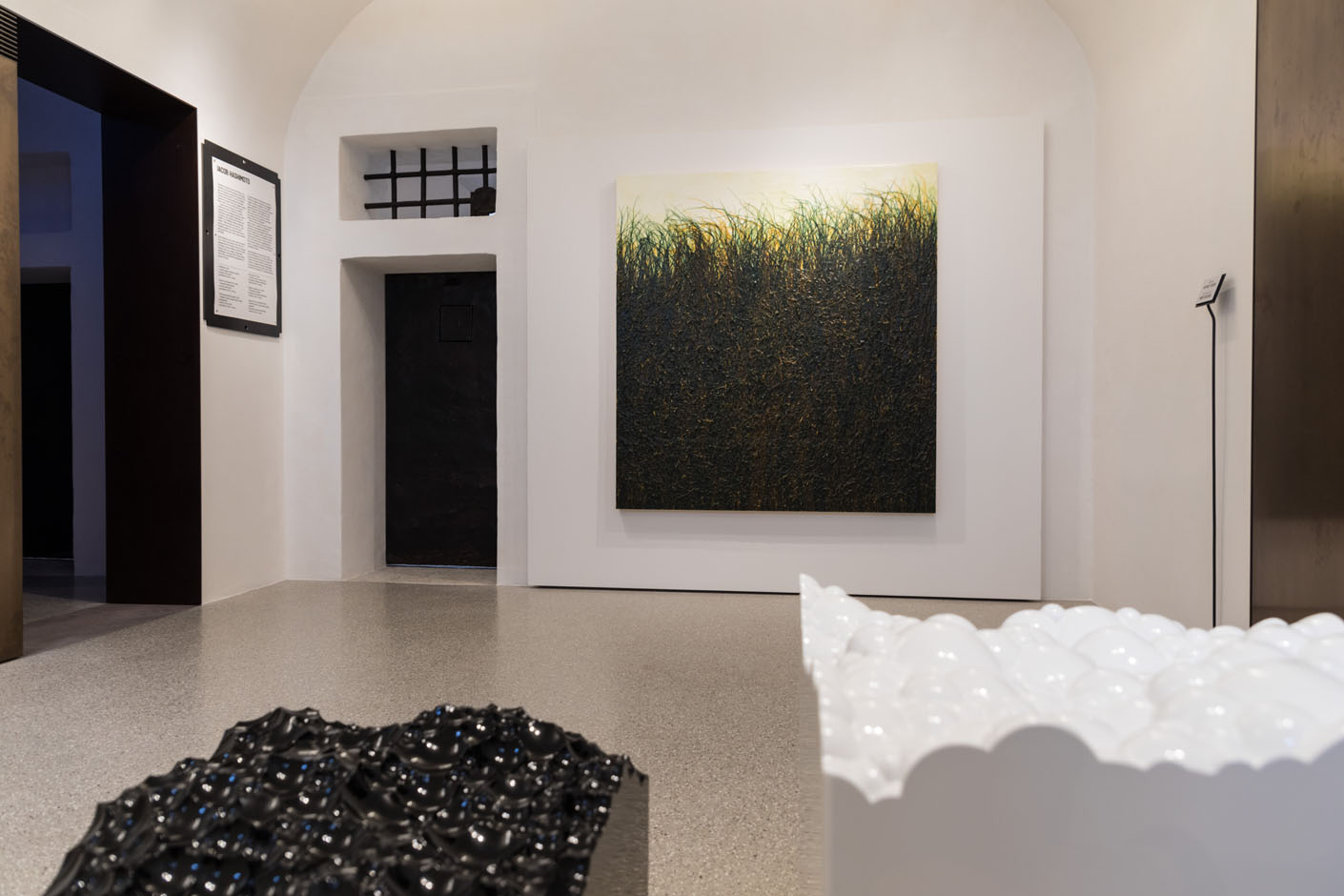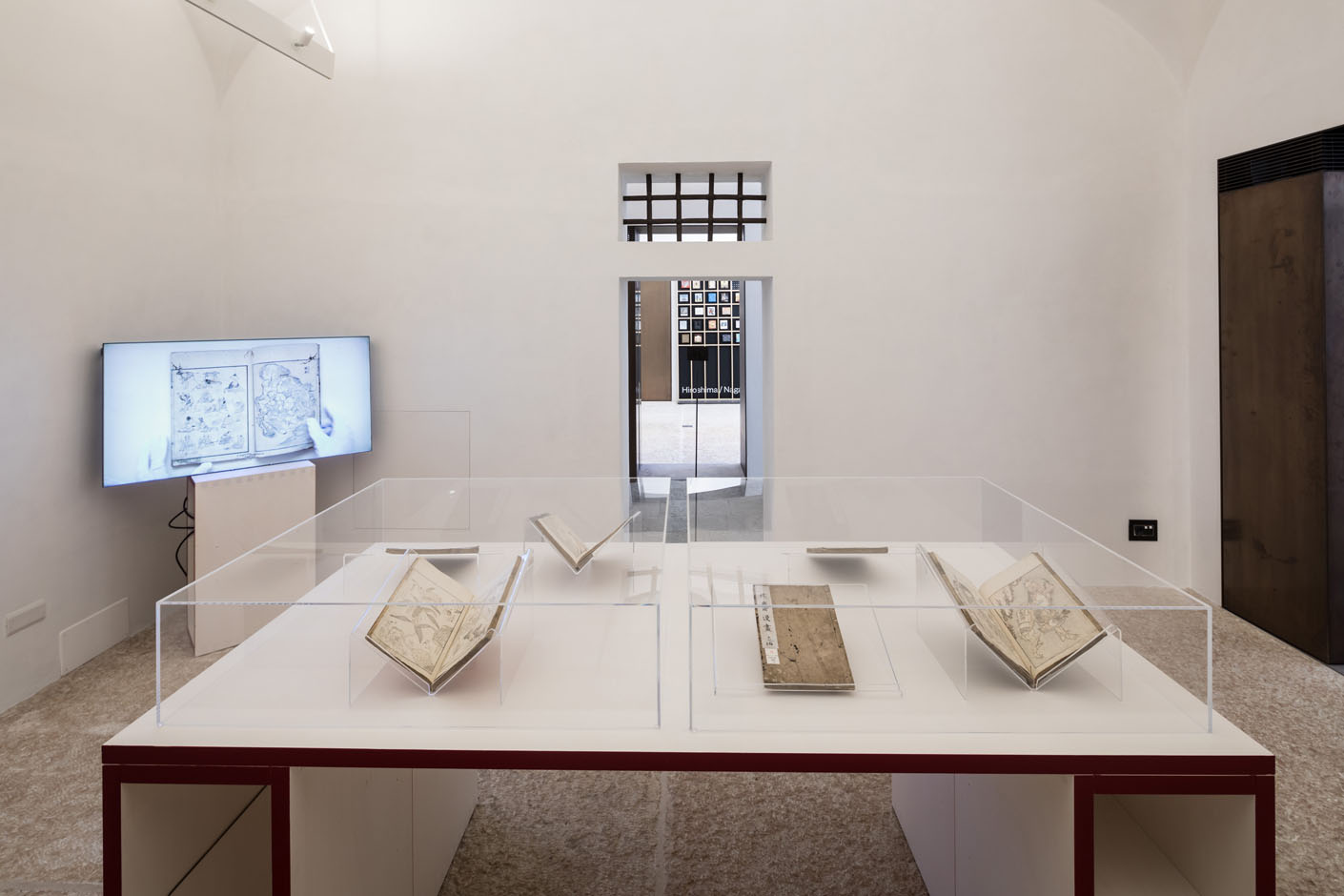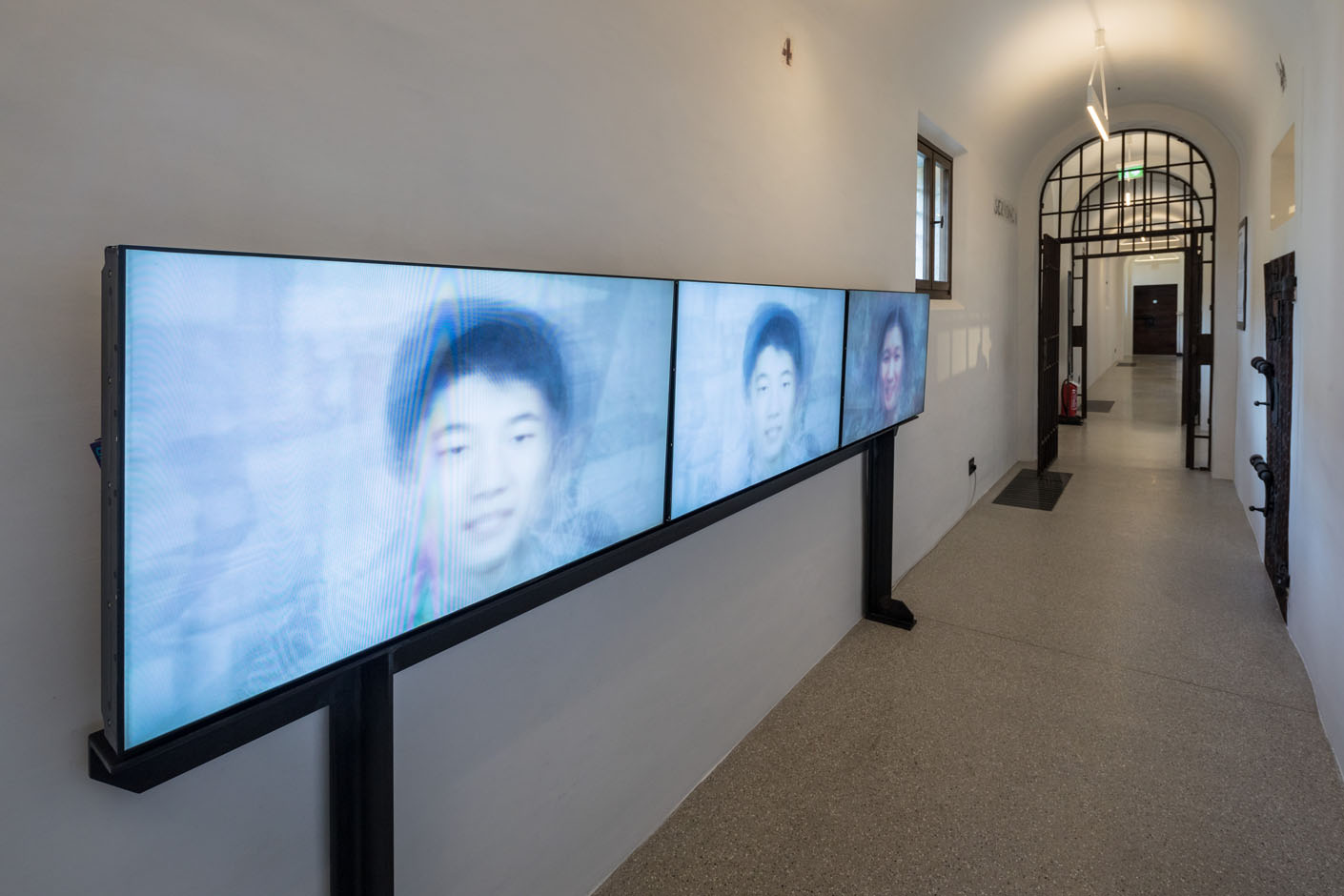Exhibition
I Say Yesterday, You Hear Tomorrow. Visions from Japan
I Say Yesterday, You Hear Tomorrow. Visions from Japan explores artworks from Imago Mundi Collection of Japan and presents for the first time Hiroshima / Nagasaki and Ainu collections, in an exhibition that revisits the past to reimagine a brighter future. Starting from the beginning of the atomic age up to today and beyond, the exhibition unveils the various ways in which the dialogue between nature, technology, tradition, and time is interpreted in Japanese contemporary art.
curated by
Suzanna Petot
Discover more
Imago Mundi collection
artists
catalogue
Many pieces within the Japanese Imago Mundi Collection use recurring motifs, such as clocks, radioactive warning signs, the mushroom cloud, or a phoenix. In “The View”, artist Kou Maeda captures the atom bomb as it hovers between a flying dragon and the city below, suspended in the critical moment between peace and devastation. By bringing these works together in one space, they become reminders of the lessons we can learn from humanity’s prior mistakes.
In Japanese culture, earlier events are used as catalysts for progress and modernization. In roughly seventy years, the nation achieved an economic renaissance and rebuilt society from the ashes of war’s destruction. Exploring this notion further, the exhibition includes the first photographs in Nagasaki after the explosion by Yosuke Yamahata, the documentary “Nagasaki Journey” by Chris Beaver, and a series of historical sketches by Katsushika Hokusai.
I Say Yesterday, You Hear Tomorrow presents how the cyclical process of action, reflection, and innovation is juxtaposed with an enduring respect for nature. Elements of traditional Japanese practices are incorporated into the visitor’s journey throughout the building, highlighting the subtle connections between life, ritual, and temporality. The artists – including Nobumichi Asai, the collective Don’t Follow the Wind, Jacob Hashimoto, Keita Miyazaki, Adoka Niitsu, and Junya Oikawa – respond to historical events and personal narratives, revealing wider changes in society or self-identity. From installation, painting, video, to photography and sculpture, a diverse range of creative techniques draws awareness to collective traumas, evokes nature, raises questions about current national and environmental affairs, experiments with new media, and celebrates the present. In the end, we are asked: what do you truly hear when someone mentions “yesterday”, or “tomorrow”? The exhibition invites us to consider our own relationship to time, nature and humanity, and to imagine alternative solutions to the problems of today for a better tomorrow.
Inauguration video
11 July / 25 November 2018
GALLERIE DELLE PRIGIONI - TREVISO
curated by
Suzanna Petot























